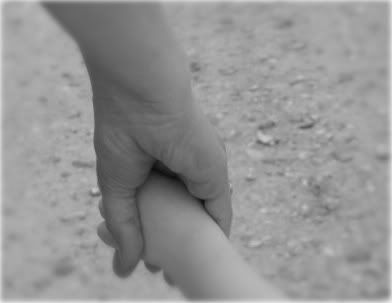New Ark United Church of Christ,
Newark, DE
March 23, 2014

Who do you find difficult to
love? Who pushes your buttons, sits on
that very last nerve, the one whose attitude would, in the words of Anne
Lamott, make Jesus want to drink gin straight out of the cat dish? Perhaps this person is from the past. Quite possibly they are in public service or
they make it into the news quite frequently.
They could live down the street or work with you or might live with you. Maybe they’re even in this room.
On
some days it’s us: we’re the one who is difficult to love, either because we’re
cranky or tired or something hasn’t gone the way we wanted it to. More often, we’re difficult to love because
we’re hurt, we’ve been wounded, either recently or from a long time ago, and we
snarl and scratch and bite with our words and feelings.
When
it comes to living in community, chances are either we will be the one
difficult to love or we will be serving and worshiping with someone difficult
to love. We’ll take turns, swap places. Sometimes we’ll wear out our welcome or
someone will wear their welcome out on us.
More often, we have good days, months, spells of time when we’re moving
and groovin’ with the Spirit. But there are
times when our well runs dry, we want to be filled, and we find ourselves with
someone or whole group of someones we find difficult to love.
Jesus
came to a well to get a drink because he was tired and thirsty. What he found was someone who wasn’t
difficult to love but, as a Jew, someone he wasn’t supposed to love: a woman
from Samaria. And yet he loved her
anyway. He talked to her, listened to
her, accepted her, taught her as though she were a student, revealed himself as
the Messiah to her. She expected to be
treated differently, as one not worthy of these attentions. But then this is Jesus we’re talking about.
Earlier
this week, Fred Phelps of the Westboro Baptist Church died under hospice care
in Topeka, KS. He’s the most recent in a
long line of troubled, broken souls not only difficult to love but who behaved
in such a mean, painful, hateful manner that we feel as though we are not supposed to love him.
Ironically,
Fred Phelps’ date of death was also Fred Rogers’ date of birth, Mr.
Neighborhood himself. Eleven years ago Fred
Phelps and members of the WBC protested Fred Rogers’ memorial, because of Mr.
Rogers’ practice of not only tolerance but acceptance of everyone, saying that
his ‘syrupy teachings led millions astray’.
In Mr. Rogers’ words, those so-called syrupy teachings sound like
this: “Love isn’t a state of perfect
caring. It is an active noun like
struggle. To love someone is to accept
that person exactly the way he or she is, right here and now.”

And
so when members of the WBC held their first protest since Phelps’ death, at a
concert given by New Zealand singer-songwriter Lorde in Kansas City, a
counter-protest was also held as usual but this time there was a different
message: a banner with the words “Sorry
for your loss”. Not surprisingly, the
folks from the WBC couldn’t understand the message, it meant nothing to them,
because hate and anger have a way of numbing our souls to grief and sorrow, as
much as to joy and love.
But
what if the folks at Westboro Baptist Church were inundated with expressions of
sympathy, condolences, and prayer? As blogger Darren Main suggests, what if, in their name and in memory of Fred Phelps,
donations of any amount were made to organizations like the Matthew Shepard
Foundation, the Wounded Warrior Project which benefits veterans, or the
Newtown-Sandy Hook Community Foundation—all of these representing funerals and
memorials that have been picketed by the WBC.
Love indeed wins, but not without struggle, not without action, not without
a willingness on all our parts to be not just generous with our love but
extravagant.

For
now, we’re going to engage in an exercise of love in action: an agape or love
feast. On the table are pitchers of
water and cups for drinking, crackers—both regular and gluten-free, and
cheese: water, to remind us of our
thirst for God, for unconditional love, for justice, crackers to intensify our
thirst, and cheese for protein. Please
serve each other rather than help yourselves.
In
the bulletin are questions for discussion at your table. These are not easy questions, but do try to
find one you can answer. Give each
person the honor of speaking without interruption or questions. Offer each other a word of trust that what is
said will not be repeated. Lastly,
during the week, keep your tablemates in prayer, simply holding them in the
light of God’s love. We will have 12
minutes together.
Let
us begin with the prayer that I use at the beginning of the sermon:
Lord Jesus
Christ,
Take our
hands and work with them.
Take our
lips and speak through them.
Take our
minds and think with them.
Take our hearts
and set them on fire
With love
for you and all your people.
Amen.
QUESTIONS
FOR DISCUSSION DURING THE LOVE FEAST
- What makes it difficult for you to love someone?
- Think of a time when you were surprised by love and tell the story to those around the table.
- Whom does our culture say we’re not supposed to love?




